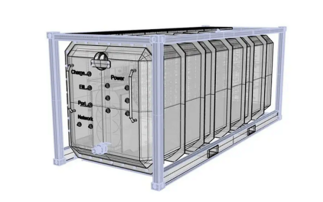Greater computing power is essential for the UK to compete with rivals such as Japan and the US
The UK science industry must be given access to high-performance petascale computers as soon as possible to ensure the country’s economic competitiveness. The Strategic Framework for High End ...
To continue reading this article...
Join Computing
- Unlimited access to real-time news, analysis and opinion from the technology industry
- Receive important and breaking news in our daily newsletter
- Be the first to hear about our events and awards programmes
- Join live member only interviews with IT leaders at the ‘IT Lounge’; your chance to ask your burning tech questions and have them answered
- Access to the Computing Delta hub providing market intelligence and research
- Receive our members-only newsletter with exclusive opinion pieces from senior IT Leaders



















